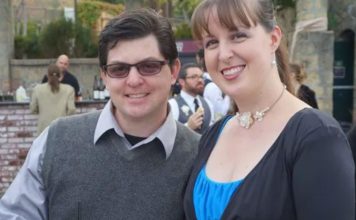Gilroy
– The private company developing a 411 wireless directory says
that fears about telemarketers hunting down numbers and eating up
monthly minutes are nothing more than
”
urban legend.
”
Gilroy – The private company developing a 411 wireless directory says that fears about telemarketers hunting down numbers and eating up monthly minutes are nothing more than “urban legend.”
Jeff Fishburn, a spokesman for Qsent Inc., based in Portland, Ore., has fielded calls from reporters all week looking to demystify the company’s plans in the wake of concerns stirred up over the Internet.
An e-mail that has gained increasing circulation in recent weeks warns people they must sign up for the National Do-Not-Call Registry by Dec. 15 or else telemarketers will gain access to their cell phone numbers starting in the new year.
That e-mail is simply false, according to Fishburn, who said Qsent has no intention of releasing cell phone numbers to telemarketers.
“There’s still a little confusion among the consumers,” Fishburn said.
He explained that the company is working with six wireless providers to compile a database of customers who explicitly choose to have their numbers listed. Qsent will not publish the directory in print or electronic form, or on the Internet. It will only make single numbers available to callers requesting information through the national 411 service.
The company expects its wireless directory to be especially attractive to individuals and small business owners who no longer use landline phones.
According to industry surveys, there are currently 173 million wireless subscribers in the United States, of which more than 10 percent rely on mobile phones as their primary or only phone line.
The Wireless 411 Service grew out of a collaboration of six major carriers, including AllTel, AT&T Wireless, Cingular, Nextel, Sprint PCS, and T-Mobile, as well as the Cellular Telecommunications and Internet Association, an industry professional group. The carriers chose Qsent to compile the wireless listing and provide the service to 411 operators.
Verizon Wireless, which has 39 million customers, chose not to join the service. Instead, it will allow its customers to list their mobile numbers in the company’s Superpages directory.
Numerous federal laws protect cell-phone users against telemarketing calls, including the Do Not Call Registry, CAN SPAN Act of 2003 and the Telephone Consumer Protection Act of 1991, which prohibits the use of automated-dialing programs to reach wireless customers.
Nonetheless, Qsent is still safeguarding against the disclosure of numbers. Fishburn said the safety measures include restricting access to the database to “a handful of 411 operators,” none of whom will have the capability to view the entire database at once or to download any information. They can only retrieve single numbers at a caller’s request.
Jay Staunton, spokesman for U.S. Rep. Mike Honda (District 11), said that Congress addressed the issue of sales pitches targeted at cell phones when legislators drafted the National Do-Not-Call Registry, which allows people to remove their landline numbers from telemarketers’ call lists.
“There are no loopholes that I’m aware of,” Staunton said. “It’s pretty clear that cell phones are off-limits to telemarketers.”
He acknowledged that the “public is overwhelmingly against” any change in the situation. In light of that, it appears unlikely any legislator would sponsor a loosening of restrictions in the face of such public opposition.
To learn more, visit www.wireless411service.com, www.ctia.org, or www.donotcall.gov













